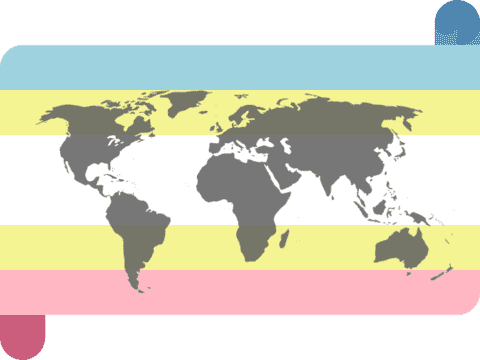
In an effort to justify the widespread stigma directed at individuals who are attracted to minors, some people claim that this stigma plays a role in preventing pedophiles and other minor-attracted people (MAPs) from sexually abusing children. Most MAPs never offend regardless of how much stigma they encounter, but for those who are at risk of doing so, stigma can play a role. However, it may not be the one you expect.
MAP-centered stigma
Stigma is defined as society's response to an individual or group's possession of a trait that causes others to view them as different or inferior. Nearly every minority experiences some level of stigma, though the severity may change over time. Stigma is typically the result of subconscious biases, though some people may make conscious efforts to justify stigmatizing others in an attempt to avoid confronting their biases.
In the case of MAPs, a significant portion of the stigma is caused by society's unwillingness to differentiate between people who experience attractions to children (MAPs, including pedophiles) and those who sexually abuse children (child sexual abusers). Even though the overlap between the two is less than half of each group, it is often easier for people to blame all child abuse on pedophiles rather than face the reality that anyone can be an abuser.
One notable element of MAP-centered stigma is the role of language in its perpetuation. Bigots have persistently misused medical terminology like "pedophile" to the point where the incorrect definition has gained widespread use. Today, many wrongly believe that the term pedophile refers to someone who abuses children and that pedophilia is the act of abusing a child.
Stigma enables abuse
Contrary to popular belief, stigmatizing MAPs, including pedophiles, likely makes it easier for abusers to harm children. Most child sexual abusers are not MAPs, but due to stigma, the public tends to focus exclusively on the perceived threat posed by pedophiles when developing strategies to keep kids safe, which can allow non-pedophilic child abusers to evade scrutiny. When a child discloses abuse, adults are often skeptical that it could have been perpetrated by someone who doesn't fit the stereotypes associated with pedophiles. This is one of the reasons abuse has thrived in organizations like the Catholic Church.
Stigma also strengthens misconceptions that can make it harder for those affected by abuse to speak up. In an effort to protect others, abuse survivors often work to spread accurate information about abuse. When this information contradicts stigma-laden stereotypes, survivors can face pushback and even harassment. In early 2022, a member of the Scottish Parliament received death threats after correctly explaining that abusers are often friends and family members of their victims. The fact that she was a survivor herself did little to discourage the attacks. Incidents like these only add to the shame that many survivors struggle with and may discourage them from coming forward altogether.
Stigma impedes research
Child protection experts commonly face a scaled-up version of the same problem, as part of their job is to spread accurate information about abuse. A particularly notable example is Allyn Walker, a child protection expert who was the target of transphobic harassment campaigns after an interview in which they explained that destigmatizing pedophilia and other minor attractions can prevent abuse. In the following weeks, misinformation about Dr. Walker's work was circulated online and they were eventually forced to resign from their position at Old Dominion University, despite an open letter from over 60 experts in the fields of child protection, mental health, and criminology urging the university to reinstate them.
Unfortunately, the success of the attacks against Dr. Walker only emboldened those working to stifle accurate information about abuse, and other experts have since faced attacks of similar severity. In extreme cases, even high-ranking politicians have taken part in the misinformed harassment. As a result, many child protection experts feel unsafe discussing their research outside of academic circles. This makes it harder for schools, summer camps, and other groups that work with children to get the information they need to implement effective practices to keep kids safe.
Stigma limits support
Of course, the stigma surrounding MAPs also affects MAPs directly. Due to widespread misconceptions about their attractions, MAPs risk being harassed, attacked, and publicly outed if they tell the wrong person about their attractions. A 2011 survey found that 58% of MAPs wanted professional support but were unwilling to pursue it, with the most common reasons being fears of a negative reaction from or false report by their therapist. A 2018 study supported the finding that stigma prevents MAPs from seeking professional support.
Stigma also prevents MAPs from seeking other forms of support, such as support from peers and loved ones. MAP support groups exist and are promoted by experts, but the myth that allowing pedophiles to interact with each other will increase their likelihood of abusing children limits MAPs' knowledge of their effectiveness. Additionally, MAPs may be unwilling to disclose their attractions to friends and family members for fear of being judged or mistreated. This causes MAPs to avoid support opportunities that could boost their mental health.
In some cases, stigma can even increase a MAP's risk of offending. MAPs who experience high levels of internalized stigma are more likely to suffer from a variety of mental health issues (such as anxiety, depression, and suicidal thoughts), many of which are known risk factors for sexual violence. Stigma can also cause MAPs to try to suppress their attractions, which can cause them to become overwhelming and increase a MAP's risk of offending.
Stigma is widely understood by experts to be detrimental to the wellbeing of minor-attracted people and the safety of children, leading child protection organizations to speak out about its harms. Nevertheless, many people continue to perpetuate stigma through misleading language, inaccurate claims, and even explicit harassment and threats directed at individuals they suspect of being or supporting MAPs.





Subscribe